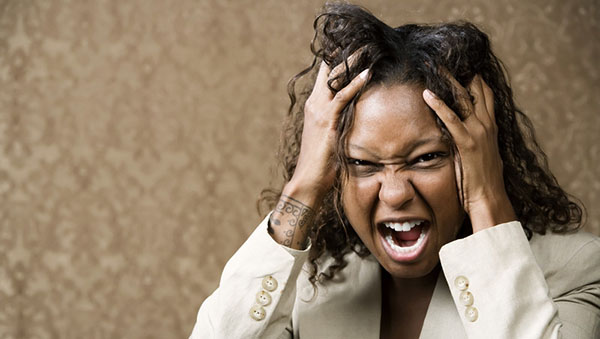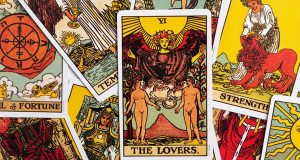By Amirah
Pride Sex Columnist
The question was posed a few days ago: “Are Black women angry?” My “one love, one heart” internal response was quick and sharp like a two-edged sword, “Damn right Black Women are angry!” And we have every right and reason to be.
Not only are we told by every faction in our lives that we are not enough, (while internalizing the damaging truth that we have to be enough, all, and more) the men our mothers birthed have disowned us. They justify their love for another race by trashing all that makes us unique, and dismissing the ways we’ve learned to cope.
Yet, in the midst of all of this anger, blackness and womanliness, love continues to reign and love belongs to everyone. So if you find yourself in love, and loving an angry Black woman, here are some things to consider, know, and understand.
Her hair is not “Our” hair.
It will serve you well to understand the relationship a Black woman has with her hair, the relationship her hair has with societal views through the media, and the image of what she thinks/wants her hair to be.
This is a complex relationship, and as with every relationship, it comes with its own insecurities, sleepless nights, successes and failures—and like every relationship, outside opinions are rarely appreciated.
When you have an understanding of a Black woman’s relationship with her hair, it will be easier for you to understand why we are ride-or-die for so many choices in colour, weaves, wigs, braids, and natural hair styles, including opting for the low to fade haircut.
It will also be easier to understand that you and your Black woman do not share hair follicles, her hair does not become public property once sex and exclusivity is involved, so unless asked do not offer opinions about her hair.
Validation is important, so do it often.
Regardless of our main love language, we,[Black] women love to hear words of affirmation and validation, I will go as far as to say [Black] women NEED to hear words of affirmation and validation.
We have been told for centuries that we aren’t good enough in myriad ways, by those that claim to love us and those that openly hate us. We are tired of being everything to everyone.
Spitefully stir into the exhaustion pot, accepting life as a single mother (whether single or in a committed relationship) working more than one job to make ends meet; because social justice is not on our side.
All while being encouraged to give away the money we make, to a church that only helps us by taking our money, and handing us an olive oil or sweat drenched prayer cloth in return. It’s vitally important that these destructive messages of “work for value” be put in a grave dug when we are home and with the one(s) who love us.
We all are capable of delivering the pep talk of self-worth and self-love to ourselves, but do not despise the inherent need of hearing it from the one with whom you share your heart, your bed, and your body.
Do not compare her to any other woman in your life.
Let me be blunt with you: Your intentions do not matter here; the amount of love dripping from every syllable you pronounce, also does not matter here—just do not do it.
Comparing your Black woman to any other woman in your life, or celebrity is undoing the work the validation has just done. Comparing the people in our lives, to anything and anyone that enters our mind is something we all do a little bit too easily.
“You remind me of so and so; you have a J. Lo butt; I love J. Lo; my ex use to do that too.” Do not ever say that last one, even if it’s in praise of an oral sex trick that blows your mind every time, do not blurt that out ever.
As a sometimes angry Black woman, I am confident in saying, that we do not want to know or be reminded that we remind you of anyone, or anything— *cue R-Kelly “You remind me” to prove my point*.
We want to know that we are enough just the way we are, without attributing that which makes us unique and special individually and collectively to any other woman you may have loved, or with whom you have had a relationship.
Except maybe mothers, especially if you are a momma’s boy that loves and protects his mother, yet even then mother comparisons should be as rare as a blue moon, and never before, after or during sex.
Do not subject her to racist standards of beauty.
Black women have been grappling with the sad and ugly truth, that our beauty is only considered beautiful when found on white bodies, or close(r) to white bodies.
History as white washed as it is, informs us that women of colour have always been the standard of beauty, we have been and we remain the template for what is considered beautiful, sexy, alluring, and desirable.
Black beauty is present in all shapes and sizes of the black woman, and it is a peculiar type of violence to subject her beauty to that which she is not.
Our bodies are our bodies for a reason, and shaming the body of the woman you claim to love, is not doing her a service, rather it’s doing you a disservice.
As my Lover often says, he is selfish when it comes to our relationship, which translates to “happy wife, happy life.” If you fear that the woman in your life is not taking care of herself physically, extend to her days of self-care, let her take care of herself, offer to take care of her, and appreciate the body that has evolved, changed, grown, and lost to do what she does so well, nurture.
Consent is everything.
That is a truth we have learned in every stage of development. ‘Yes’ means yes, and ‘No’ means no.
Without delving into the effects of slavery and racism on the body of a Black woman, it is necessary to declare that we have been taking back what it means to own our physical spaces.
A Black woman’s body is her own, and no one else’s. She has the command over her body, and what she says concerning her body is to be taken as law. There is no veto option, you do not get a say, though she may ask for your opinion, she is the master of her body.
This extends to every area of life, especially when it comes to sexual intimacy, and bedroom play, it is very important to talk about, and agree on what is acceptable and what is off limits.
Safe words, checking in, and pillow talk are all vital to a safe sexual relationship, keeping in mind that sexual preferences in play are fluid, so what may be a green light today, may evolve to yellow or even red at another time.
In the midst of all these conversations, remember that consent in everything.
Do not refer to your angry Black woman as an angry Black woman.
According to societal standards of respectability and norms, being a black woman that is angry about her place in society is not something to be proud of; “she” is an ugly person to be, and often followed by the words “bitter” and “single”.
Not many women have reconciled with the state of being an angry Black woman, so unless you want to find yourself bed-less, sex-less, blanket-less, and breakfast-less, do not refer to her as an angry Black woman.
If she refers to herself as such, do not interject with an enthusiastic nod of agreement, let her talk it out, and engage her in a conversation about it. Let her tell you why she does, or doesn’t accept the label, and use it as an opportunity to be educated about the stresses included in the journey as a Black woman.
Black women have come a long way, and we are continuing to grow, evolve, and shine in the dark rooms we have been locked in. We are breaking down the doors, the walls, and the condemned house in anger; there is nothing pretty about demolishment, but there is beauty.
That is how an angry Black woman should be loved.
Do you have questions or problems regarding your sex life? Amirah can help you with answers. Your name and information will not be published. Amirah welcomes your feedback! Send your comments or questions to: amirah@pridenews.ca. Follow her on Twitter: @I_amAmirah.
 Pride News Canada's Leader In African Canadian & Caribbean News, Views & Lifestyle
Pride News Canada's Leader In African Canadian & Caribbean News, Views & Lifestyle





